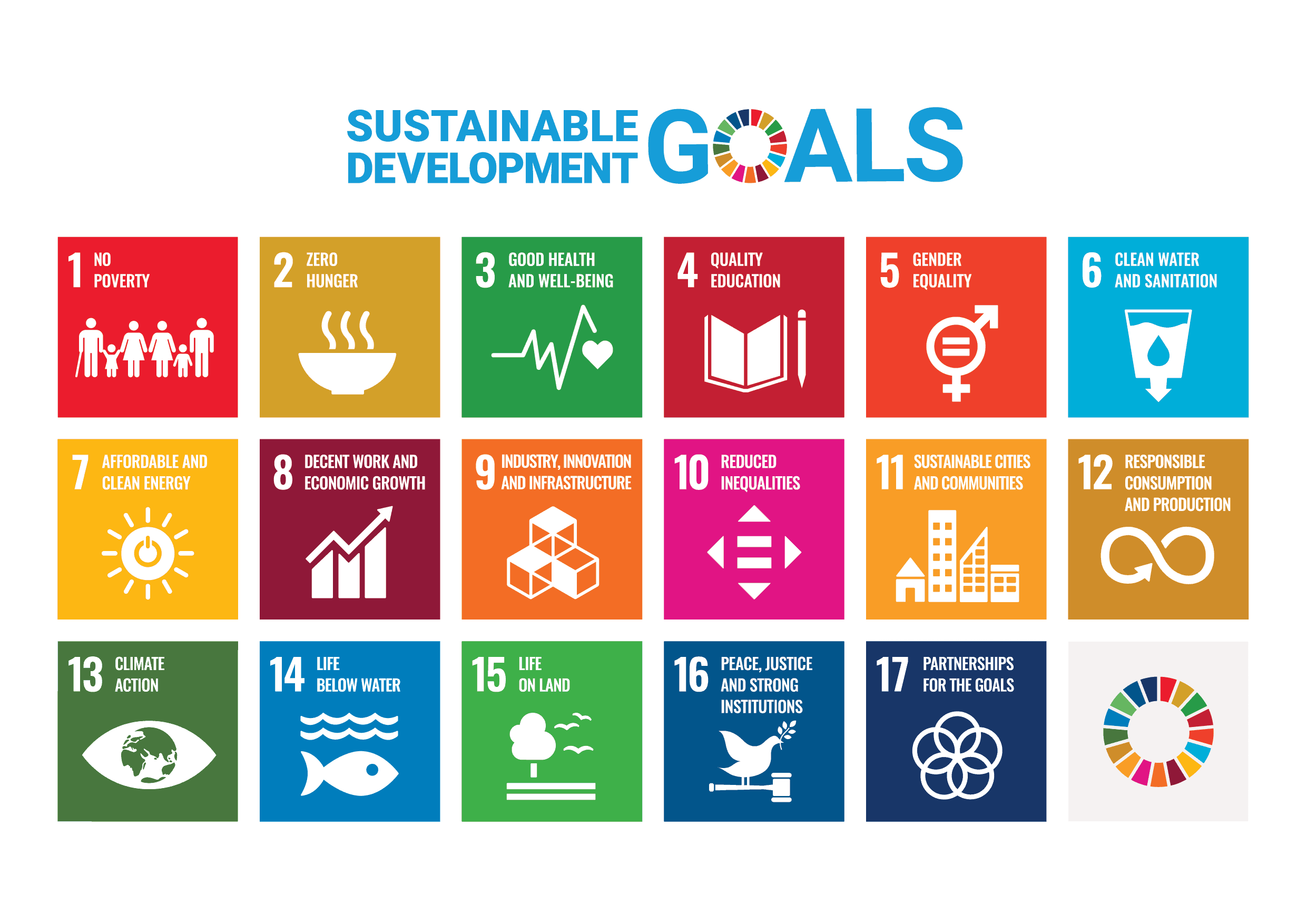Strengthen the means
of implementation and revitalize the global partnership for sustainable
development
Target 17.1: Strengthen domestic resource mobilization,
including through international support to developing countries, to
improve domestic capacity for tax and other revenue collection.
- Mauritius: In 2019, PAGE,
along with national partners such as the National Productivity and
Competitiveness Council (NPCC) and SME Mauritius, supported a
“Sustaining Competitive and Responsible Enterprise (SCORE)”
pilot training aimed at optimizing efficiency, productivity, cleaner
production and competitiveness of local SMEs through improved
workplace cooperation. SCORE-trained trainers will also instill
SCORE’s methods into NPCC-supported training on a recurrent
basis to ensure long-term sustainability.
- PAGE Global Work: PAGE has developed and implemented a moderated online training package on green fiscal reform. This training package aims to help governments face the triple challenge of reducing environmental risks, fostering economic growth and reducing poverty through policy approaches that improve fiscal consolidation, spur innovation, and help identify smarter ways for government taxation and spending. The course was reformulated as a self-paced e-course in 2020.
Additionally, PAGE developed a new self-paced e-learning course on sustainable finance in 2019.
Target 17.3: Mobilise additional financial resources for
developing countries from multiple sources.
- Mongolia: PAGE has
supported the Mongolian banking sector in the development of green
and inclusive financial products and services, in partnership with
the UN Environment Finance Initiative. This work has contributed to
the establishment of a working group to create a green credit fund,
which aims to bring long-term financing to projects that stimulate
green growth.
- Ghana: In collaboration with the Ministry of Finance, Bank of Ghana and the Banker’s Association, PAGE finalised a scoping study in 2019 to identify green finance interventions, investment opportunities and barriers, and support domestic resource mobilization. A set of recommendations and proposed actions were identified that included advancing work on Green and SDG bonds.
Additionally, in 2020 PAGE worked with the University of Ghana Business School (UGBS) to develop and pilot a course on green finance which will be rolled out in 2021.
- Mauritius: According to Mauritius’ 10-Year SME Master Plan, there is a need to improve SMEs access to finance by expanding their funding opportunities and reinforcing their capacity and financial awareness. A Forum on Green Business Development was organized in May 2018 to discuss issues related to sustainable procurement and access to green financing. Subsequently, stakeholder consultations were held in July 2019, and work commenced on a study on SME access to green finance in 2020.
- Barbados: PAGE Barbados has contributed to the successful development of a Joint Programme proposal entitled: ‘Harnessing Blue Economy Finance for SIDS Recovery and Sustainable Development’, which supports the sustainable development of offshore fisheries resources. The programme, developed jointly by UNDP, UNEP and FAO, will support the governments of Barbados, Grenada and Saint Vincent and the Grenadines, in the development of financing strategies in the Blue Economy and creating an enabling framework for investments in SDGs.
- Kyrgyz Republic: PAGE is providing expertise to identify financial sector needs for the implementation of the principles of Sustainable Finance and to analyze existing legislative frameworks relevant to sustainable finance and the current level of enforcement. In line with this, PAGE released a report in May 2020 on ‘Investment Opportunities for the Development of a Green Economy in Kyrgyzstan’, which analyzes opportunities for green investments in Kyrgyzstan and provides related recommendations.
- Argentina: PAGE is exploring various avenues to support Argentina in the development of sustainable finance. In 2020, PAGE developed a financial instrument with the Public Bank of the Federal State of Chaco, which is based on Ecosystem Valuation. Going forward this will be replicated in other Provinces.
- Burkina Faso: The adoption of the support project for the implementation of the National Strategy on Green Economy paves the way for further resources mobilization beyond PAGE. In line with this goal, PAGE supported a virtual workshop from 16-18 December 2020 to train government officials from various ministries, as well as NGO staff, in the development of bankable projects, which could attract climate funding. There are plans to continue with additional trainings in early 2021.
Target 17.9: Enhance international support for
implementing effective and targeted capacity-building in developing
countries to support national plans to implement all the sustainable
development goals, including through North-South, South-South and
triangular cooperation.
- Mongolia and Kyrgyz Republic: PAGE
has supported a South-South cooperation project between the Kyrgyz
Republic and Mongolia that is strengthening mutual exchange on green
economy policy development and practices of the two countries. In
2018, on International South-South Cooperation Day, this exchange
was recognized in a report highlighting best practices in
south-south and triangular cooperation throughout the entire UN
system.
- China and South Africa: China,
through Jiangsu Province, was the first country to apply the Green
Economy Progress Measurement Framework at the sub-national level. In
2018, policymakers in South Africa began to consider the tool to
track their green economy transition and use it as a potential
dashboard for green economy and sustainability indicators.
Researchers from China were invited to share their experiences at a
national training and stakeholder workshop in Pretoria.
- Uruguay and Argentina:Uruguay and
Argentina have paved the way for South-South collaboration, jointly
hosting the first regional webinar as part of a South-South Green
Economy Network for Change in Latin America. The initiative is a
direct follow-up to the Green Economy Academy held in Turn in
October 2019, with 40 representatives from Brazil, Guatemala and
Mexico attending. This webinar will be taken forward as an important
information sharing platform for not only Latin America, but also
the Caribbean.
- Mato Grosso,
Brazil and Uruguay:
In December 2019, a delegation from Mato Grosso visited Uruguay for
an exchange workshop on capacity-building and meetings with national
institutions focused on vocational training and circular economy.
- Senegal and Burkina Faso: PAGE Burkina Faso and PAGE Senegal have collaborated with UN CC:Learn and the West African Climate Change Learning Platform to support experience sharing among West African countries in the area of climate change and inclusive green economy. The purpose of the collaboration is to promote exchanges between institutions and countries through webinars, expert debates, training and the development of learning materials adapted to the sub-regional. Three webinars took place in 2020, with more experience sharing events to take place in 2021.
- South Africa and Argentina: Under the UNEP-GIZ GET project, in 2020 a virtual green jobs dialogue was initiated to promote South-South Collaboration between South Africa and Argentina. This included a first webinar on 18 November in collaboration with ILO and GGKP, featuring participants from both South Africa and Argentina.
- Guyana: To support the development of an online platform with the Ministry of Finance — which will facilitate monitoring and reporting on national development plans and policy targets — in 2020 PAGE, led by UNDP, has been in discussion other UNDP offices in Jamaica and Chile to facilitate South-South cooperation among Ministries of Finance through ‘virtual study tours’.
- PAGE Global Work: In 2019,
PAGE and the Green Growth Knowledge Platform (GGKP) launched the
Green Industry and Green Finance Platforms acknowledging the
importance of the two sectors in a green economy transition. The new
platforms provide users from the financial and private sector easy
access to the latest research, data, guidance and tools through 194
country pages specified by region, sector, or cross-cutting themes.
Linked to this, an interactive on-line community is under
development to provide a medium for actors to communicate
effectively.
Target 17.11: Significantly increase the exports of
developing countries, in particular with a view to doubling the least
developed countries’ share of global exports by 2020.
- Jiangsu Province,
China: The PAGE Environment and Trade Hub conducted a study
on south-south trade in environmental goods and services and
collaborated with the Research Institute for Global Value Chain
(RIGVC) for a baseline assessment of sustainable textile trade and
value-chains. The studies provided the basis for multi-sectoral
workshops and trainings on trade in environmentally-sound
technologies and sustainable textile value-chains, and summarized
good practices shared at international events.
- PAGE Global Work: PAGE has
designed and delivered an interactive e-learning course on the nexus
of trade and the green economy. The practice-oriented course
provides participants from the government, business and civil
society with an introduction to various approaches to promote and
harness opportunities related to sustainable trade. In 2020, this course was reformulated to also be offered as a self-paced e-course.
Target 17.14: Enhance policy coherence for sustainable
development.
- Senegal: With PAGE’s
support, the Ministry of Environmental and Sustainable Development,
led a modelling exercise to update the national green economy model
and related green economy assessment report. The updated assessment
was directly linked to the Plan Senegal Emergent II (PSE) and second
Priority Action Plan (PAP 2019-2023) that is being implemented since
the beginning of 2019. The model provided investment scenarios for
six crucial sectors – agriculture, fisheries, forestry,
energy, water resource management and waste management –
providing important insights into the benefits and challenges of
related IGE policy reforms.
- Burkina Faso: Building
on macroeconomic and sectoral assessments supported by PAGE, the
National Green Economy Strategy and supporting Action Plan were
adopted in July 2019, marking a major milestone in the country’s
IGE transition. The strategy promotes the creation, development and
consolidation of a critical mass of competitive, sustainable,
value-adding industries and decent job providers, primarily in the
transformation of local raw materials. In October 2020, a project document to support implementation of the Strategy, including an action plan and Sustainability Plan for PAGE was adopted.
- Uruguay: PAGE supported the
inclusion of environmental components into the National Development
Strategy Uruguay 2050 officially announced in August 2019. In
addition, PAGE supported the development of the National
Environmental Plan for Sustainable Development launched in October
2019 to provide a framework for environment management.
- South
Africa: PAGE has worked to enhance policy
coherence for sustainable development by supporting the Green
Economy Inventory for South Africa (GEISA), which serves as a
platform for enhancing coordination and acts as a tool to guide
decision-making among policymakers. GEISA covers 1,000 green
initiatives in all provinces and sectors and has contributed to the
development of provincial green economy strategies and sectoral
policies in seven of the nine provinces in South Africa.
- Kyrgyz Republic: The Green Economy Development Programme 2019-2023 was approved in November 2019 during the Green Economy Week and officially enacted in 2020. PAGE supported the development of this policy document, through the completion of a macroeconomic assessment using system dynamics modelling highlighting seven priority economic sectors and three cross cutting areas. The Sustainable Finance Roadmap, Green Economy Learning Needs Assessment and Green Industry Trade Assessment (GITA) – all supported by PAGE – have been integrated into this programme to support policy coherence.
- Jiangsu Province, China: PAGE, through UNEP’s participation in the China Council for International Cooperation on Environment and Development (CCICED), submitted policy proposals for the new ‘14th Five-Year Development Plan (2021-2025)’, released on 29 October 2020, which took into consideration the findings and experiences from PAGE in Jiangsu Province.
- Kazakhstan: In collaboration with GIZ, PAGE is supporting the development of National Low-Carbon Development Concept until 2050 (LEDC), anticipated to be completed in February 2021. PAGE will specifically contribute to the waste sector and on NDC implementation through fiscal policy reform. Additionally, PAGE supported the update of the National Development Strategy Kazakhstan 2025, contributing a chapter on green economy which was incorporated in the draft version of the Strategy as one of the seven key policies.
- Kyrgyz Republic: In January 2020, the government established a Coordination Commission on Green Economy and Climate Change, with PAGE supporting this process. This Commission will, among other things, coordinate action of the state executive authorities, local governments, non-profit and international organizations to support implementation of the Green Economy Development Programme.
- Argentina: PAGE developed an analysis of the ‘Linkages between the 2030 Agenda and Just Transition for Green Recovery’. This study, finalized in August 2020, emphasizes how the green economy can be a tool to achieve sustainable development with special focus on poverty eradication.
- Argentina: In 2020, PAGE supported the establishment of two additional ministerial boards on Green Jobs and Just Transition and Sustainable Production, coordinated by the Ministry of Labour under the National Cabinet of Ministers on Climate Change. They provide a mechanism for green economy issues promoted by PAGE to be officially discussed in a central policy making mechanism.
Target 17.16: Enhance the global partnership for
sustainable development, complemented by multi-stakeholder partnerships
that mobilise and share knowledge, expertise, technology and financial
resources, to support the achievement of the sustainable development
goals in all countries, in particular developing countries.
- A UN collaboration: PAGE brings together five UN agencies – UN Environment, International Labour Organization, UN Development Programme, UN Industrial Development Organization, and UN Institute for Training and Research – whose mandates, networks and expertise combined can offer integrated and holistic support to countries on IGE, ensuring coherence and avoiding duplication. PAGE represents a mechanism to coordinate UN action on green economy and to assist countries in achieving and monitoring the SDGs. In addition, PAGE works with a wide network of actors and stakeholders, including eight funding partners and 10 action partners.
- Senegal: The National Green
Economy Days have become an established initiative to bring
together stakeholders to discuss IGE related topics, including the
management of funds from oil and gas revenues and green jobs. Three
events have been organized in 2015, 2018 and 2020. At the 2018
edition, the National Platform for Green Economy and related Action
Plan was launched to stimulate dialogue, information sharing and
continued action on IGE. This was built upon in 2020, when the
Decree establishing and setting the organizational modalities of the
platform was signed by the Minister of the Environment and
Sustainable Development. With two events organized in 2015 and 2018,
a third is planned for 2020.
- PAGE Global Work: PAGE contributed to the development of a joint paper with the Partners for Inclusive Green Economy, which was launched on World Environment Day in 2020, identifying ten policy options to guide a fast, fair and green recovery from COVID-19.
Target 17.17: Encourage and promote effective public,
public-private and civil society partnerships, building on the
experience and resourcing strategies of partnerships.
- Guyana: PAGE’s
involvement in Guyana has led to the establishment of regular Green
Conversations—high-profile, multi-stakeholder events that
explores a particular aspect of the Green State Development
Strategy: Vision 2040, as well as green economy principles such as
green economic growth and green fiscal policy, sustainable
agriculture, and investments in renewable energy. The events have
drawn a combined audience of approximately 200 with an online reach
of more than 12,000 participants through live streaming.
- Kyrgyz Republic: An
Alliance of Green Universities was formed in June 2019 to provide a
platform to exchange knowledge on green economy and sustainable
development. It also provides the opportunity to form
inter-university research teams and carry out large-scale research
projects and establishes links between universities and government
agencies, to ensure there is a strong foundation for policy
developments. The Alliance is a result of PAGE supported work,
starting from the Green Economy Learning Needs Assessment.
- Argentina: PAGE organized a virtual High-Level National Dialogue on Green Economy on 15 December 2020, engaging the three government ministries through which PAGE works. The Dialogue provided an opportunity to strengthen coordination amongst Ministries on policies for a Just Transition, while using the social dialogue to increase momentum on sustainable and inclusive outcomes. This provides the starting point for a series of dialogues to be organized on an annual basis. representatives of the Union Central and the Industrial Union.
- PAGE Global Work: PAGE’s
global events, such as the PAGE Ministerial Conferences, provide a
unique platform to promote IGE and effective public, public-private
and civil society partnerships. The Third PAGE Ministerial
Conference held in Cape Town in 2019, welcomed over 500 participants
from more than 50 countries, including ministers, UN heads,
entrepreneurs, activists, and policymakers. The Cape Town Action
Pathways Towards 2030 summarized key messages emerging from the
discussion to support countries in advancing their own “just
transition” to the 2030 Agenda. In 2020, PAGE held an official side event at the High Level Political Forum (HLPF), which brought together UN Heads of Agencies and ministers from PAGE funding and partner countries, to contribute to a high-level discussion on a renewed commitment towards the SDGs and climate and biodiversity targets, highlighting the ways in which an inclusive, green economic recovery can support the Decade of Action.
Target 17.19: By 2030, build on existing initiatives to
develop measurements of progress on sustainable development that
complement gross domestic product, and support statistical
capacity-building in developing countries.
- South Africa: PAGE has worked with national stakeholders to develop a framework for monitoring the transition to an environmentally sustainable and low-carbon economy, following the example of Jiangsu Province. The framework, which was drawn from the PAGE Green Economy Progress Measurement Framework, was developed
and validated in 2019 and formally launched in 2020, and takes the form of a dashboard of green economy and environmental sustainability indicators for South Africa.
- Guyana: Guyana’s green
economy modelling, using system dynamics techniques, was completed
in September 2019. Known as GEMS (Guyana’s Economy Modelling
Study), this model assessed the economic, social and environmental
impacts of selected green policies, with a focus on energy,
agriculture, forestry and road transport. This assessment was vital
in informing the development of the national strategy and in
demonstrating to policymakers that with every $1 invested in green
economy initiatives, the payback could be four times the investment. Furthermore, in 2020, PAGE has commenced preparatory work to support Guyana in the development of a comprehensive monitoring and reporting approach for its national plans.
- Ghana: In 2020, PAGE assessed the impact of previous PAGE trainings on mainstreaming green economy in development planning at the local level, looking specifically at the trainings on SDG metadata and on mainstreaming of climate change in development plans of MMDAs. Lessons learned from this process will be disseminated through national dialogues to inform training models, guidance and policies on mainstreaming, monitoring and reporting on climate change and the SDGs.
- PAGE Global Work: PAGE
has developed a tool called the “Green Economy Progress
Measurement Framework” for policymakers, analysts and other
stakeholders, which can be used to understand how green economy
progresses. Inspired by this Framework, the Global Green Growth
Institute (GGGI) launched the Green Growth Performance Measurement
(GGPM) programme in 2019 to provide policymakers with a metric to
measure green growth performance to support their decisions in line
with the SDGs, and national climate and biodiversity goals.
- PAGE Global Work: PAGE has developed a package of teaching materials for a semester-long course on Inclusive Green Economy Modelling, pilot tested in spring 2020 at the Universidad de Pacifico in Peru. The course teaches participants how to utilize IGE modelling to inform policy and decision-making processes through integrated analysis of economic, social and environmental impacts and deliver on the SDGs and Paris Agreement. Additionally, PAGE has integrated content from modules for training on Indicators for IGE into a self-paced e-learning course, supporting policymaking for an inclusive green economy.
- PAGE Global Work: As part of an ongoing effort to support PAGE Partner Countries, the PAGE COVID-19 Hub was first developed in May 2020 to offer relevant news and academic articles on green economic recoveries. Closely following, the PAGE Data Observatory was developed to track socio-economic and health impacts from COVID-19, track policy responses and assess potential focus areas for green recovery in PAGE Countries. It now also includes tracking on green economy progress in partner countries by using selected indicators from the Green Economy Progress (GEP) Measurement Framework and its Dashboard of Sustainability.





















